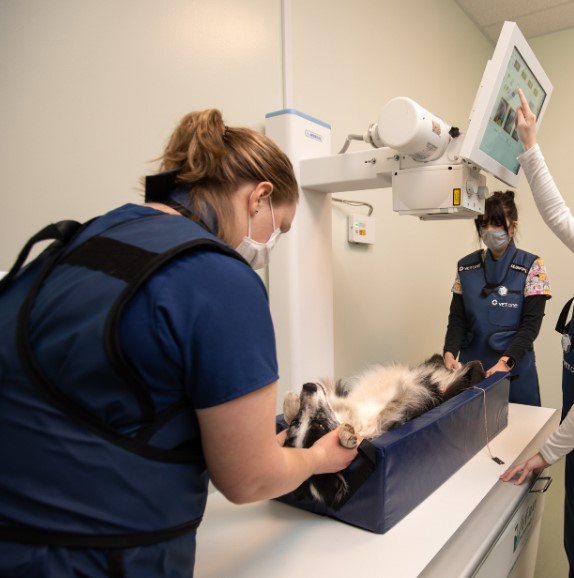Ever wondered what it takes to be the right hand of a veterinarian, caring for animals big and small? A veterinary technology program is your gateway to this fulfilling career path. It equips you with the knowledge and skills needed to assist in surgeries, administer medications, perform lab tests, and provide compassionate care to animals in need.
What is a Veterinary Technology Program?
A veterinary technology program, often leading to an Associate’s degree, is a comprehensive course of study that blends classroom learning with hands-on experience. You’ll delve into animal anatomy and physiology, learn about various diseases and treatments, and master essential clinical skills like venipuncture, radiography, and anesthesia monitoring.
The Hands-On Experience: A Game-Changer
One of the most exciting aspects of a veterinary technology program is the extensive hands-on training. You’ll work directly with animals under the guidance of experienced veterinarians and technicians, gaining practical experience in a real-world setting. This could involve anything from assisting in routine check-ups to participating in complex surgical procedures.
I remember the first time I assisted in a surgery during my veterinary technology program. It was a spay procedure on a young Labrador Retriever. I was nervous, but the veterinarian was patient and explained every step. By the end of the surgery, I felt a sense of accomplishment and knew I had chosen the right career path.
Diverse Career Opportunities: More Than Just Clinics
Graduates of a veterinary technology program are not limited to working in veterinary clinics. They can find employment in various settings, including animal shelters, research laboratories, zoos, and even pharmaceutical companies. Some vet techs specialize in specific areas like equine medicine, exotic animal care, or emergency and critical care.
The Demand for Vet Techs is Growing
The field of veterinary technology is experiencing significant growth, with the Bureau of Labor Statistics projecting a much faster than average job outlook. This means that qualified vet techs are in high demand, making it a promising career choice for animal lovers.
Beyond Technical Skills: Compassion and Communication
While technical skills are essential, a successful vet tech also possesses excellent communication and interpersonal skills. You’ll need to interact with pet owners, explain diagnoses and treatment plans, and provide emotional support during difficult times. Compassion, empathy, and a genuine love for animals are the cornerstones of this profession.
Continuing Education: Staying Ahead of the Curve
Veterinary medicine is constantly evolving, with new treatments and technologies emerging regularly. To stay at the forefront of your field, continuing education is crucial. Many veterinary technology programs offer continuing education courses and workshops to keep your skills sharp and your knowledge up-to-date.
Is a Veterinary Technology Program Right for You?
If you have a passion for animals, enjoy working with your hands, and are eager to make a difference in their lives, then a veterinary technology program might be the perfect fit for you. It’s a challenging but rewarding career path that offers a unique blend of science, compassion, and hands-on care.
The Impact You Can Make
As a veterinary technician, you’ll play a vital role in the health and well-being of animals. You’ll be their advocate, their caregiver, and their friend. You’ll witness the joy of a successful surgery, the relief of a pet owner whose animal has recovered, and the unconditional love that animals give in return.
In conclusion, a veterinary technology program is not just about learning skills; it’s about embracing a lifelong commitment to animal care. It’s about making a difference, one paw at a time.

